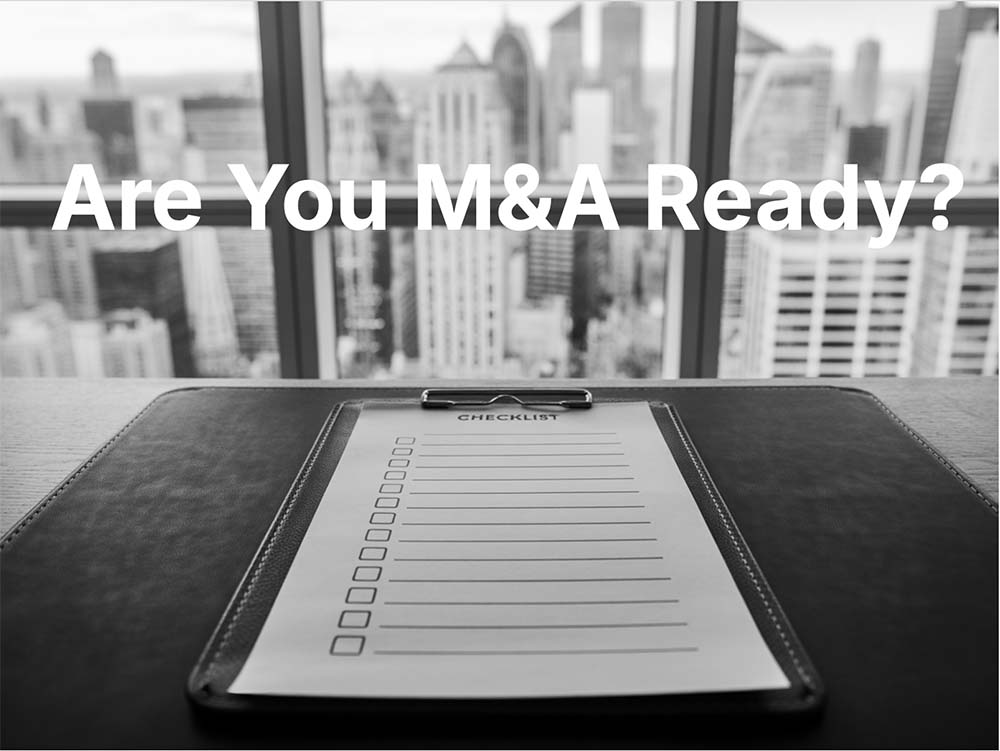Most founders don’t wake up thinking about selling their company, but the reality is that M&A is the most common exit path for startups – about 95% of startups that exit do so via an acquisition, while just 5% go public. Sometimes a buyer comes knocking before you are even ready. Other times, you decide to run a structured process. Either way, the companies that see the best outcomes are the ones that are deal ready long before the first conversation even happens. I have seen promising deals delayed, and in some cases fall apart entirely, because a company was not prepared. Here is a high-level look at what founders should do to make sure they are M&A ready.
Understand the price that makes sense
The first step in being M&A ready is not pulling together contracts or cleaning up your financials. It is knowing what a deal would mean for you and your shareholders.
Even if M&A feels years away, run a waterfall analysis. A waterfall shows how the proceeds from a sale flow to each group of stakeholders in the company. This will differ for each company based on your capital structure. Generally speaking, debt holders are paid back first, then preferred investors, and finally common shareholders like founders and employees. The analysis helps you see what each person actually receives at different exit values. It gives you a clear picture of what a potential exit really means for you — whether it is just a nice dinner out or truly life-changing money. Knowing your walk-away price and what comes back to you sets expectations and avoids surprises later.
Understand what type of buyer you may attract
You can often get a sense of this earlier than you think. Look at who is showing interest in your space. Are larger players making acquisitions to expand product lines, add capabilities, or enter new markets? That points to strategic buyers. If your sector is attracting private equity that focus on revenue and profit multiples, then financial buyers may be more likely.
Strategic buyers often pay for synergies, IP, market access, or the strength of your team. Their offers may be higher, and the integration (tech and people) expectations will higher.
Financial or revenue buyers focus on cash flows and metrics like ARR, CAC, and margins. Valuations are more formula driven and less about the story.
Knowing this helps you set expectations for valuation and the type of diligence focus you will face.
Be ready for Diligence
Being ready for diligence does not mean keeping a fully built data room at all times. That would be cumbersome and unrealistic. What it does mean is having good processes and accurate record keeping as part of your normal operations. If your financials are current, your contracts are organized, and your records are up to date, you can pull together the required data quickly without a painful clean-up exercise.
Understanding the typical areas buyers focus on will help you prioritize your record keeping and process discipline:
- Business overview deck: Have a clear summary of your business model, key metrics, customer base, market position, and growth strategy. This sets the stage for the rest of diligence.
- Financial statements: Maintain a current set of statements with proper reconciliations and a description of key accounting policies such as revenue recognition.
- Financial Model: Build and maintain a financial model that reflects your growth strategy, key drivers, and assumptions. I normally aim for a minimum of 3 years being forecasted.
- Corporate records: Keep your cap table accurate, option grants properly documented with supportable FMVs, and shareholder agreements and board minutes up to date.
- HR and people: Ensure employment and contractor agreements are all signed, everyone has assigned IP rights to the company (normally part of the employment agreement), and you have readily available HR records and policies.
- Intellectual property: Maintain system architecture documentation, including security and controls, ensure trademarks or patents are registered, and ownership is clear. Maintain a list of open-source licenses utilized in your software to ensure there aren’t any restrictions on usage.
- Customer and supplier contracts: File all major agreements and if possible, track key terms such as renewal dates, change of control provisions, and termination rights.
- Tax: Keep filings current and store any correspondence with tax authorities so there are no surprises.
When these areas are in order, diligence becomes smoother, buyer confidence goes up, and you avoid last-minute fire drills that can derail a deal.
Why founders win when they are deal ready
Being deal ready is about more than responding when an offer shows up. It starts with knowing what a deal actually means for you through a waterfall analysis, understanding the type of buyer you may attract, and keeping your records in a state where diligence can move quickly.
Founders who take this approach reduce delays, increase buyer confidence, and give themselves the best chance of closing at the right value. Even if M&A feels far away, building these habits into your day-to-day operations means you will be ready when the opportunity comes.
We partner with founders to create clarity and discipline around finance, HR, and operations — the same habits that make you deal ready. Reach out to us if you want to talk about where you stand today and how to get deal ready.





